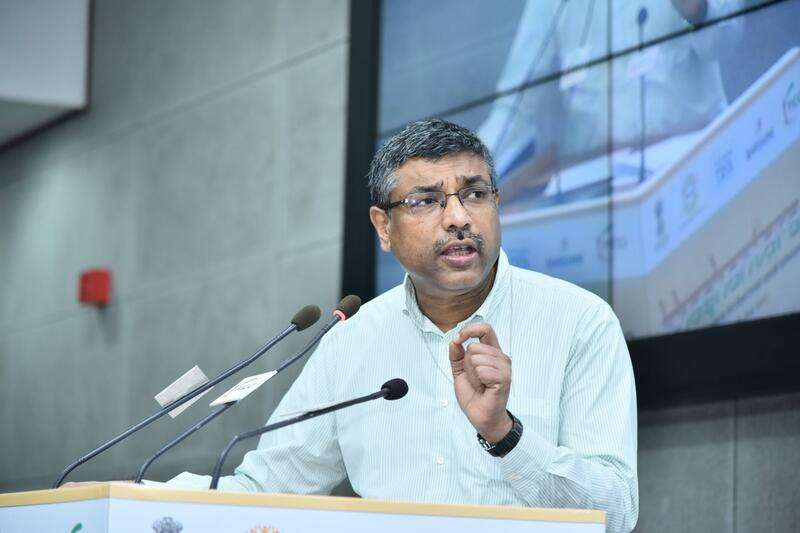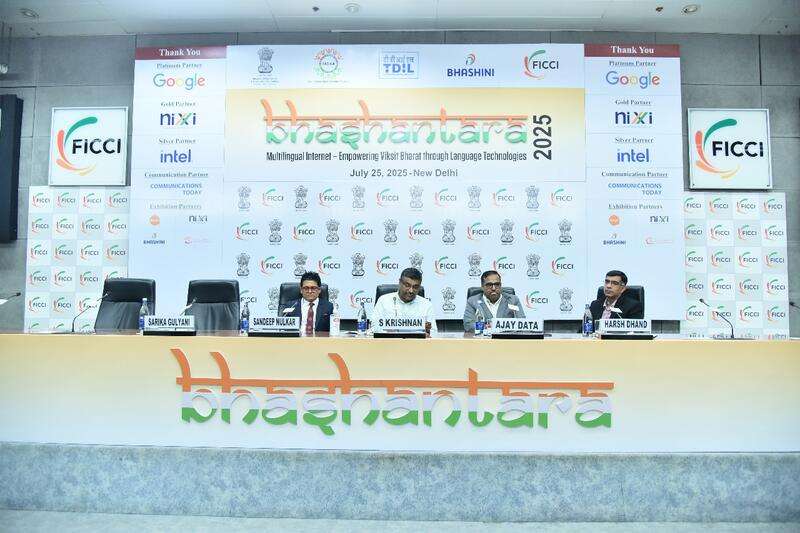
Government highlights multilingual AI mission, data repository AI Kosh, and collaborative approach to empower resource-constrained regions

New Delhi, July 25, 2025: India is prepared to share its artificial intelligence models with the Global South, reaffirming its commitment to inclusive technology development, said S Krishnan, Secretary, Ministry of Electronics and Information Technology (MeitY), while addressing FICCI’s flagship language technology conference Bhashantara 2025.

Krishnan emphasized India’s unique advantage in creating multilingual AI solutions, given its vast linguistic diversity. “If you can do it in India, you can do it practically anywhere else in the world,” he noted, highlighting that India’s AI ecosystem is designed to function in resource-constrained, multilingual environments—making it highly adaptable for countries in the Global South.
The secretary underscored key initiatives under the India AI Mission, particularly AI Kosh, a national repository of over 400 datasets to support researchers and entrepreneurs in developing multilingual AI applications. He also cited Mission Bhashini and Anuvadini as pioneering programmes advancing language technology by focusing not just on mainstream languages but also on regional dialects.
India is also digitising vast repositories of traditional knowledge, including Ayurvedic texts and historical manuscripts, to create global datasets for healthcare and research. Unlike other nations that rely solely on state or private funding, India’s approach leverages a multi-stakeholder ecosystem involving academia, industry, and research institutions.
At the conference, industry leaders highlighted actionable steps to accelerate multilingual AI capabilities. Harsh Dhand, Research & AI Partnerships APAC Lead at Google and Co-Chair of FICCI’s Multilingual Internet Committee, urged the government to unlock historical data from institutions like Prasar Bharati and All India Radio, broaden the “Make in India” mandate to “Made in India by India for India,” and foster greater collaboration among research entities to avoid duplication of efforts.
Dr. Ajay Data, Chairman of FICCI’s Multilingual Internet and Universal Acceptance Committee, highlighted India’s progress in democratizing internet access through local language domain names, now available in all official Indian languages. He stressed the commercial potential, pointing out that “with over 6 billion people globally not speaking English as their primary language, India’s 19,500 languages and dialects represent an immense opportunity for inclusion and growth.”
Concluding the event, Sandeep Nulkar, Co-Chair of FICCI’s Multilingual Internet Committee and Founder of BITS Technologies, said, “We are no longer debating the possibility of a multilingual internet. We are mobilizing around its urgency—not just academically but from a demographic, developmental, and economic perspective.”
With its focus on accessibility, collaboration, and inclusivity, India is positioning itself as a global leader in AI-driven multilingual solutions, offering an alternative ecosystem for nations seeking equitable technology partnerships.
About India AI Mission
The India AI Mission is a government-led initiative designed to foster innovation in artificial intelligence, focusing on multilingual solutions, ethical development, and inclusive deployment. Key components include AI Kosh, Mission Bhashini, and programs to digitize traditional knowledge and make AI accessible for all.





























